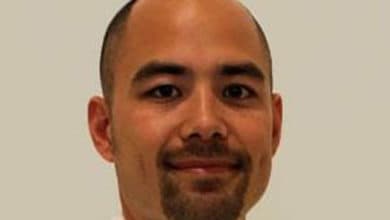Dr. Y is a third-year resident in ophthalmology.
Why did you choose your specialty?
Randomly! Ophthalmology was not on my radar until my best friend urged me to look into it after I could not figure out what to go into. I enjoyed everything and at first ophthalmology seemed too esoteric but it really is a “window into the soul” and I was attracted by the focused exam which could provide insight into a wide variety of systemic conditions.
How would you describe your specialty?
Ophthalmology is a great mix of everything. You have a good variety of clinic and surgery. You get to sit down during surgery which is unique! Ophthalmology also serves at the forefront of a lot of advances in medicine, particularly as it comes to gene therapy due to the amount of inherited retinal diseases. There is also a lot of imaging involved and we actually interpret all of our own images without relying on radiology.
What kinds of medical students tend to be attracted to your specialty?
I’d say students that think they will enjoy microsurgery and those that desire a mix of clinic and OR time.
What do you like the most about your specialty and why so?
I like how many patients we are able to help by improving their quality of lives. The exams are fairly quick compared to an internal medicine exam and the surgeries are, for the most part, quicker than other surgical specialties. It is very amenable to a high volume of care without sacrificing quality.
What do you like the least about your specialty and why so?
With the amount of technologic advances, to be able to provide the best care for your patients relies on having a wide variety of very expensive equipment which can be very fun. However, this means that it can be harder to provide the same high quality care to underprivileged areas.
What do you find the most challenging about your specialty and why so?
Microsurgery can be challenging and it is hard to practice. There are simulators and cadaver eyes but nothing is a great replacement for actually being in the operating from. It involves patience, good mentors, and steady hands. It is very rewarding to continue to make progress and fine tune your muscle memory.
What’s the most interesting case you’ve see or thing you’ve done in residency?
Being able to make systemic diagnoses of previous medical mysteries by looking in the back eye always excites me. I’ve had exams which have disclosed previously undiagnosed diabetes, leukemia, and rare genetic conditions. However, I don’t think anything can replace the feeling of seeing a patient on post-operative day one after cataract surgery thanking you for allowing them to see again!
What’s your advice for premeds in terms of making the most of their college academics, extracurriculars and social life?
Premeds have to fulfill X, Y, and Z requirements of course and I’d encourage them to do so but beyond that I would encourage them to really engage in their passions rather than trying to check off a lot of boxes like volunteering for X hours somewhere.
What’s your advice for medical school applicants in terms of figuring out where to apply, writing personal statements and/or secondary essays, getting letters of recommendation, interviewing and/or anything else?
I’d encourage medical school applicants to really try to find great mentors early on and not be shy in asking them for their support and help in reviewing personal statement drafts and interview practices.



